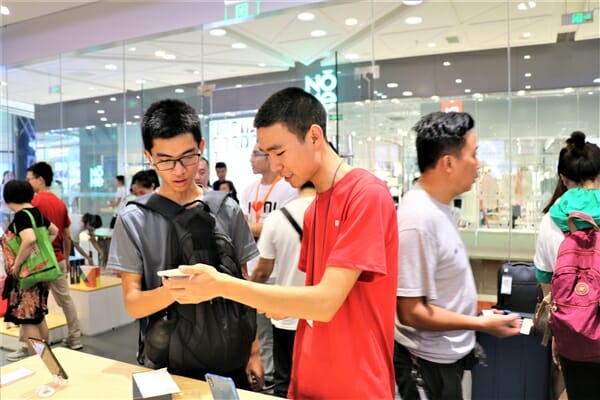Online shopping across mainland China is expected to record significant growth during this Lunar New Year holiday, according to a report by Alibaba Group Holding, as Beijing bets on domestic consumption to help revive the economy after lifting most Covid-19 restrictions last month.
Sales of nianhuo – Lunar New Year specialities that include gift boxes and alcoholic drinks – have already surged 30 per cent year on year on both Tmall and Taobao Marketplace, Alibaba’s two main Chinese online retail platforms, during the period from January 1 to 16, according to a report released by the e-commerce giant on Thursday.
Alibaba, which owns the South China Morning Post, said it expected sales to rise further over the next few days. Its latest finding was based on data generated from more than 10 apps under the group, including e-commerce, logistics, travel and map services.
“There are still some differences, but we can see people’s lives are getting back to normal,” Li Yingtao, research director focused on consumer goods industries at Beijing-based market research firm Analysys, said of the online shopping data.
Ahead of family reunions during the Lunar New Year break from January 21, small cities such as Yiwu in eastern Zhejiang province, Puning in southern Guangdong province, Kunshan in eastern Jiangsu province and Jinjiang in south-eastern Fujian province received the highest amount of holiday goods bought online by consumers in large metropolises like Beijing and Shanghai, according to the Alibaba report.
Online expenditure on sporting goods, outdoor products, wigs, pet food and other trendy merchandise showed double-digit growth during the 16 days tracked by Alibaba, compared with the same period last month, SCMP cited.
On Tmall and Taobao, the number of searches for “pre-made meals” rose 340 per cent during that period. Meanwhile, sales of meals such as a seafood dinner set for four to six persons rose 80 per cent at Alibaba-owned grocery retail chain Freshippo.
The Year of the Rabbit has also triggered consumer demand for a range of products that depict rabbits. On Tmall, sales of cyclamen – dubbed as “rabbit flower” because its petals resemble rabbits’ ears – grew more than 10 times year on year during the period tracked by Alibaba. Sales of lucky bamboos on Tmall increased more than 500 per cent, according to the report.
Alibaba’s preliminary Lunar New Year holiday sales figures reflect a much-needed confidence boost for domestic consumer spending, as China looks to rebound from a pandemic-ravaged 2022 and the country’s second-lowest economic growth since 1976.
As China’s biggest e-commerce services provider, Alibaba’s online sales are generally seen as a bellwether of consumer spending in the world’s second-largest economy and an important barometer of its economic health.
Earlier this year, National Development and Reform Commission deputy chairman Zhao Chenxin said government authorities would provide policy support to property and internet companies as part of a wider push to increase consumer spending.
“If there’s no substantial increase in infection rates or new outbreaks after the Lunar New Year holiday, consumers will regain confidence and more business activities will resume,” Analysys’ Li said. “We expect to see a stronger recovery in the first quarter of this year.”The Alibaba report said interprovincial and long-distance travel have also seen a strong resurgence during the 16-day period it tracked, based on data from Fliggy, the company’s travel booking platform.
The Lunar New Year break is expected to see 2.09 billion passenger trips, up 99.5 per cent from the 2022 level, according to a forecast released earlier this month by the Ministry of Transport.
Alibaba said cities like Foshan in southern Guangdong province, Suzhou in Jiangsu, Chengdu in southwestern Sichuan province and Hangzhou, capital of Zhejiang, have become popular local tourist destinations after the easing of Covid-19 curbs.
Taking road trips on recreational vehicles (RVs) has gained popularity among China’s middle-class families, the Alibaba report said, adding that RV booking has tripled year on year.
Bookings of recreational vehicles for Lunar New Year holiday trips have increased, according to a report by Alibaba Group Holding. Photo: Handout
Ling Jia, a 37-year-old Shanghai office worker, said she planned to take her four-person family on a five-day self-driving trip to Zhejiang.
“We were previously concerned about being infected [by Covid-19],” Ling said. “But since all of my family members have recovered, we are not worried any more and cannot wait for our first long holiday trip.”
Meanwhile, online searches for theme parks have increased 55 per cent on Fliggy, according to the Alibaba report. It also said bookings of theme park tickets for the holiday have risen by more than 1.8 times year on year.









